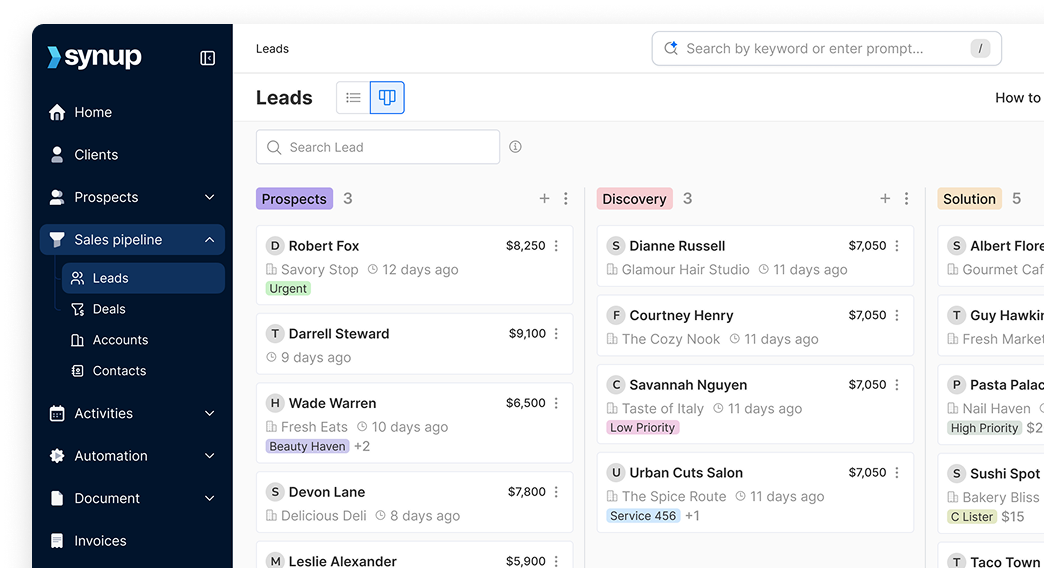How to market your home healthcare business
Are you a home healthcare business owner always looking for new ways to attract more clients and grow your business? You’re not alone! Home healthcare services are built on trust and visibility. People need to feel confident in your ability to provide compassionate, professional care before they choose you. That’s why having a solid marketing plan is crucial for success.
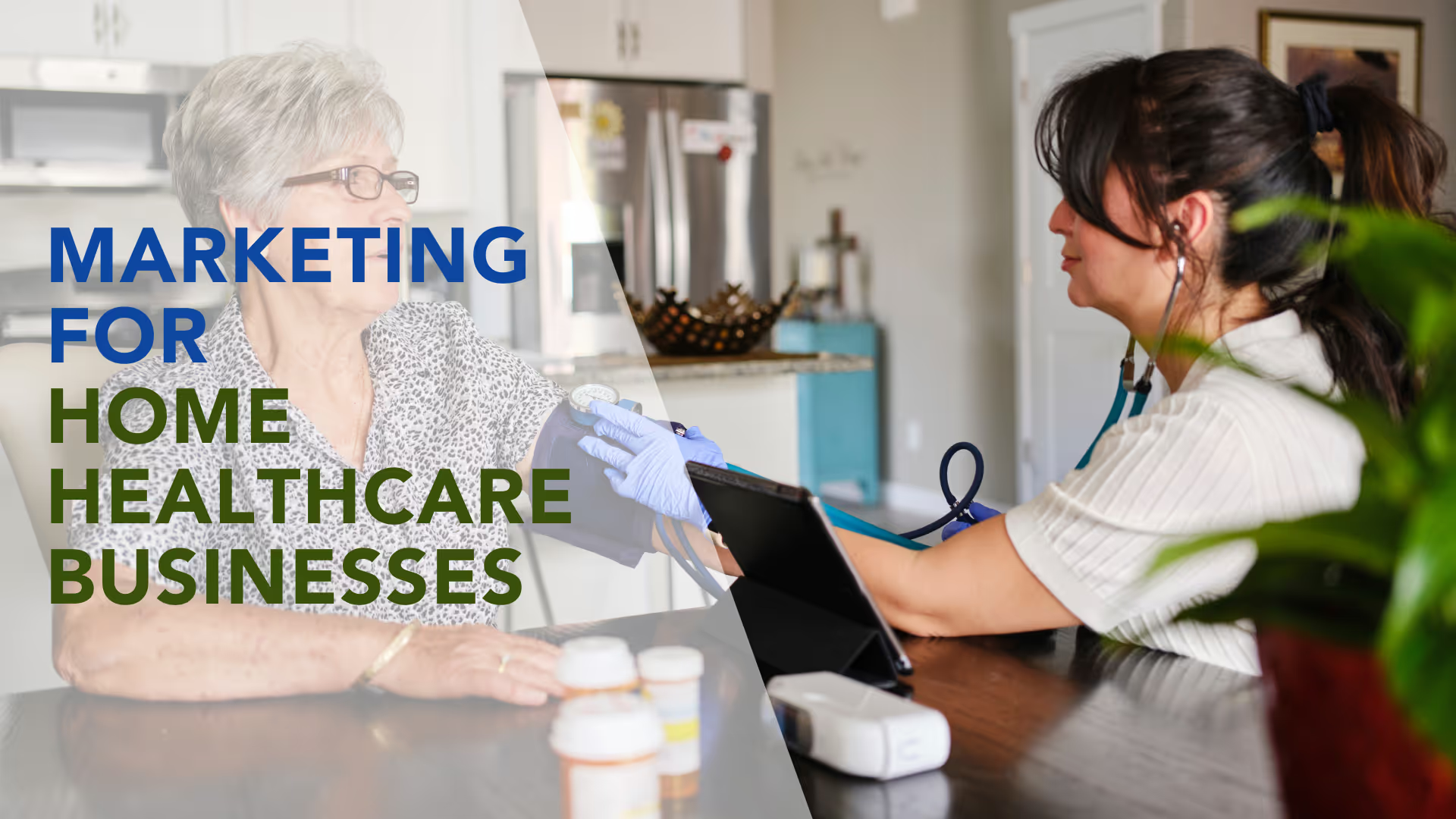
Are you a home healthcare business owner always looking for new ways to attract more clients and grow your business? You’re not alone! Home healthcare services are built on trust and visibility. People need to feel confident in your ability to provide compassionate, professional care before they choose you. That’s why having a solid marketing plan is crucial for success.
In this guide, we’ll look into practical, easy-to-implement strategies for advertising your home healthcare business, both online and offline.
TLDR: Marketing ideas for home healthcare businesses
- Understanding where your clients are currently looking for your services and making sure that you’re present there, actively, putting the word out there.
- Getting a know-how about how to gain online visibility that helps your business soar!
- 10 Effective ways to market your business online
- Discussing effective ways to market your home healthcare business
- Top marketing tools that help you make the most of your time online presence and serve your customers right.
Know where your clients are looking for care
Before you start marketing your home healthcare services, it's important to figure out where your potential clients are looking for help. This could be a mix of online and offline places, depending on who you're trying to reach.
Think about where your ideal clients spend their time.
Here are some questions to guide you:
- Are they searching for home healthcare providers on Google or other local directories?
- Are they active on social media platforms like Facebook or LinkedIn, where people share recommendations?
- Do they trust flyers, local events, or word-of-mouth from their community?
Once you know where they are, focus your marketing efforts on those places.
Online: Make sure your website is optimized, you’re listed on relevant directories, and you’re active on social media to build trust.
Offline: Connect with local doctors, hospitals, and senior living centers. Hand out brochures or participate in community events to spread the word.
By showing up where your clients are already looking, you’ll make it easier for them to find and choose your services.
Gaining Online Visibility
- Claim and update your Google My Business listing: Your Google My Business (GMB) profile is key for local search. By claiming and keeping it updated, you ensure that people searching for home healthcare services in your area can find you easily. A complete and accurate GMB profile not only boosts visibility but also builds trust with potential clients.
- Create listings on other local directories: Don’t stop at Google. Get listed on other local directories like Yelp, Bing Places, and healthcare-specific sites. These directories are where people often go when they’re looking for services like yours. The more places you show up, the more likely you are to get noticed.
- Keep your info consistent: Make sure your name, address, and phone number (NAP) are the same everywhere across all directories and on your website. Inconsistencies can confuse both search engines and potential clients.
A tool like Synup can help you manage all your listings from one place, ensuring your information stays accurate and up-to-date across the web.
- Use relevant keywords in your listings: Keywords are crucial. Add terms like “home healthcare,” “elderly care,” or “nursing services” to your listings to help people find you when they search for those services. Synup can help you pinpoint the best keywords for your area, so you’re always showing up in the right searches.
- Encourage reviews: Reviews are everything for building trust. Ask your clients or their families to leave positive reviews on platforms like Google and Yelp. More reviews mean more credibility, and that can make all the difference when someone is deciding on a home healthcare provider
.
Top 10 effective ways to market your home healthcare business
1. Advertise to Your Niche
Targeted advertising is always a good strategy, especially when you focus on the right audience. It might take a little time to get it right, but the results are worth it.
Start by connecting with local hospitals, clinics, pharmacies, and health centers. Ask if you can leave pamphlets or business cards for their clients to pick up. You could even offer to recommend their services to your clients when appropriate. This creates a win-win situation and ensures you're getting your business in front of the right people at the right time.
2. Blog About It
Building authority in the home healthcare space starts with sharing valuable content. Regular blogging, whether written, video, or photo-based, helps you educate your audience about health issues, trends, and how your services can help.
Promote your blog across social media, and over time, people will start looking to you for advice. This builds trust and brand awareness, and, in turn, more clients will find their way to your business.
3. Local SEO
Local SEO is critical for getting found by people searching for home healthcare services nearby. When someone needs home healthcare, they’ll likely turn to Google or other search engines to find providers. By optimizing your local SEO, you’ll increase your chances of appearing at the top of these searches, which means more traffic and leads for your business.
To help manage your local SEO, tools like Synup can handle all your local listings, ensuring they're accurate across directories, and help you rank better for relevant search terms.

4. Community Outreach
Community outreach is a great way to connect with locals and show that you genuinely care about their well-being. Host events like self-care awareness programs in parks or schools, or collaborate with organizations like Health Outreach Partners to spread the word.
Word-of-mouth will help grow your reputation, and these outreach programs provide a great opportunity to meet new people and generate high-quality leads for your business.
5. Testimonials & Online Reviews
Online reviews and testimonials are incredibly influential. People trust reviews more than ever when choosing a service. Start by asking your clients to leave feedback on platforms like Facebook, Google, and other local directories.
You could also showcase testimonials in your office to further build trust with potential clients. A strong online presence with positive reviews can significantly boost your credibility and attract more business.
6. Media Marketing
Traditional media such as TV ads and print can still be very effective for local businesses. The average person spends hours watching TV daily, and print media continues to be a popular source of local news, especially in non-urban areas.
You can make print ads even more effective by adding scannable links or QR codes. These could lead to an interview video from satisfied clients or an explainer video on the benefits of home healthcare, giving a tech-savvy twist to your traditional marketing.
7. Social Media Marketing
Social media is where many people spend a lot of their time, and it's a valuable tool for businesses to engage with their audience. Start by picking the platforms where your target audience is most active.
Create a content plan with engaging posts, like client stories on Mondays or health tips on Wednesdays. Join relevant groups, engage with your followers, and build relationships. With consistent and strategic efforts, social media can help you grow your client base and increase brand awareness.
8. Organize Health Fairs
Hosting or participating in health fairs is a powerful way to position your business as a local healthcare authority. Invite other professionals in your field to speak, offer resources, and provide value to attendees.
Have plenty of promotional materials, such as business cards, brochures, and coupons, ready to hand out. You can also promote your social media pages by adding QR codes to your flyers. Health fairs are a great way to build connections and expand your reach in the community.
9. Traditional Marketing
Don’t discount traditional marketing methods. While digital is the focus today, billboards, flyers, and signs still play an important role, especially in more rural areas.
Put up a billboard near busy roads or distribute flyers in local neighborhoods to keep your business top of mind for people who need home healthcare services. Combining traditional methods with digital strategies creates a powerful marketing mix.
10. Construct a Rewarding Referral Program
Referral programs are a great way to generate business and keep customers loyal. Offer incentives like discounts or gifts for clients who refer your services to others. A referral program not only helps you attract new clients but also strengthens your relationship with existing ones.
A successful referral program, like the one used by Timberland Home Care, provides an incentive for both the person referring and the new client, benefiting everyone involved.
Try Local Services Ads for Your Home Healthcare Business

Local Services Ads (LSAs) are a great way to increase your visibility and get found by the people in your area who need home healthcare services. These ads show up when someone searches for services like yours on Google, and they appear at the top of the search results, making it easy for potential clients to find you. Here’s how you can make the most of them:
1. Target the Right Keywords
Think about what someone might search for when they need home healthcare. Some good examples of keywords include:
- “Home health care services near me”
- “In-home nursing care [City]”
- “Elderly care at home [City]”
Using these keywords in your ads will help you connect with people who are actively looking for your services.
2. Location-Based Targeting
You want to make sure your ads show up for people who are in your service area. Google lets you choose a specific location radius around your business, so you can target people only within the areas you can serve. For example, if you only serve a 20-mile radius, your ad will only show to people in that area.
3. Create Ad Extensions
Ad extensions are features that help improve the visibility of your ad and make it easier for clients to contact you. Google lets you add several types of extensions to your Local Services Ads:
- Call Extensions: This allows potential clients to call you directly with one click. Great for clients who need immediate help.
- Location Extensions: This shows your business location, so people can easily find you.
- Review Extensions: If you have positive reviews on Google, you can display them in your ad to show your credibility. Reviews are a big factor in building trust with potential clients.
These extensions make your ad stand out and give people the option to contact you right away, making it easier for them to choose your services.
4. Set Your Budget and Get Started
With Local Services Ads, you set your budget based on the number of leads (calls or messages) you want to get. You’ll only pay when a potential client contacts you through the ad, which makes it cost-effective.
To get started, you’ll need to sign up on the Google Local Services platform, create your business profile, and submit information about your services. You’ll also need to pass a background check, which ensures that you're licensed and trustworthy.
5. Monitor and Adjust
Once your ads are live, you can track how they’re performing in your Google dashboard. You’ll be able to see how many calls or messages you’re receiving, and if you’re not getting enough leads, you can tweak your keywords or budget to get better results
Top Marketing Tools for Your Home Healthcare Business
1. Synup
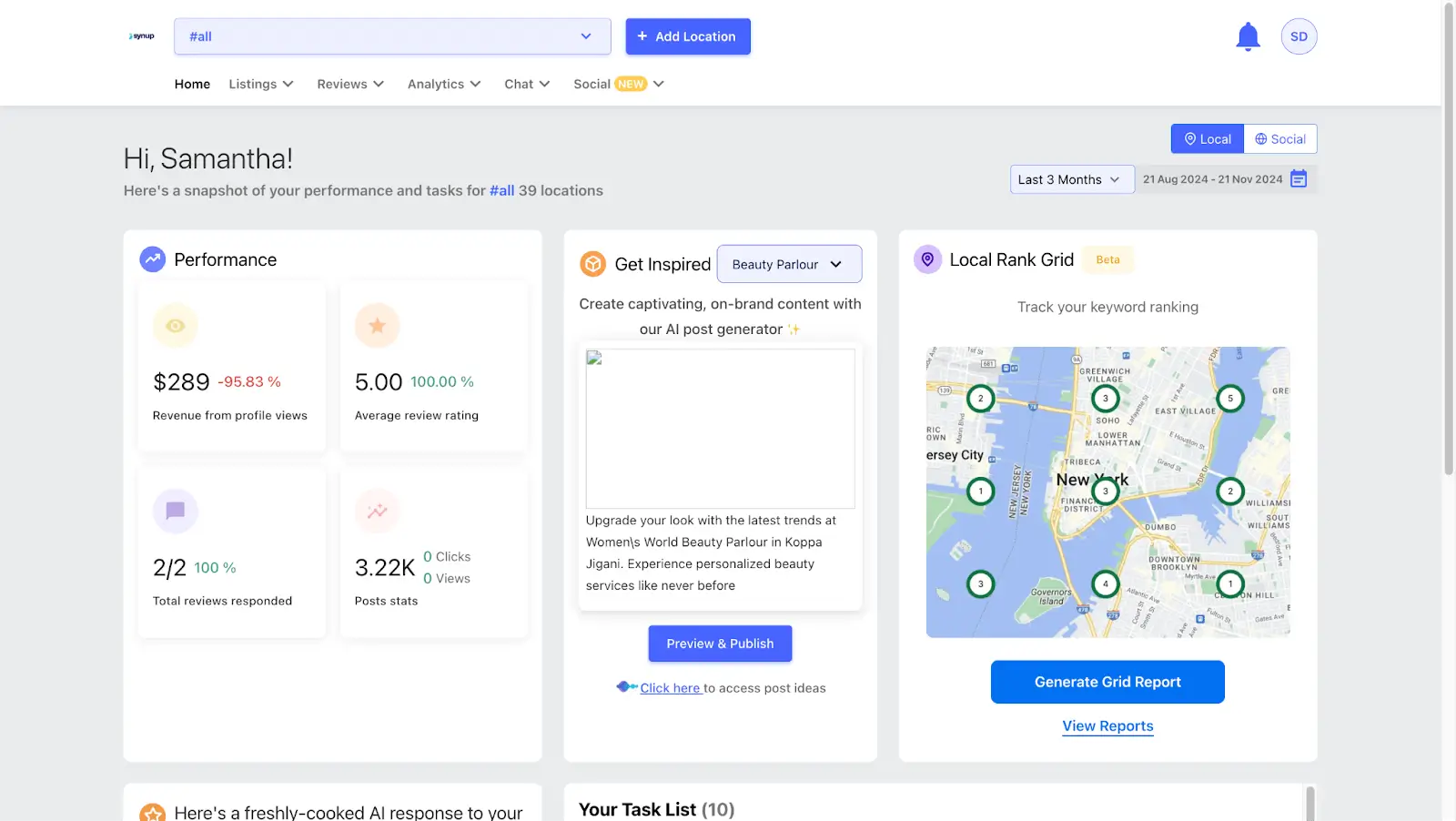
Synup is an all-in-one local SEO tool that’s perfect for healthcare providers. It helps with online reputation management, listing management, and keeping your practice’s information accurate across platforms. With tools to manage reviews, track performance, and improve visibility, Synup makes it easier for patients to find and trust your practice while helping you maintain a strong online presence.
- Local Listings Management: Keep your clinic’s name, address, and contact information accurate across all major directories like Google, Yelp, and Bing.
- Review Monitoring: Track patient reviews and respond promptly to feedback, building trust with prospective patients.
- Performance Insights: Understand how patients are finding you and where you can improve visibility.
For healthcare businesses, Synup ensures potential patients can easily find and trust your practice online.
2. Zocdoc
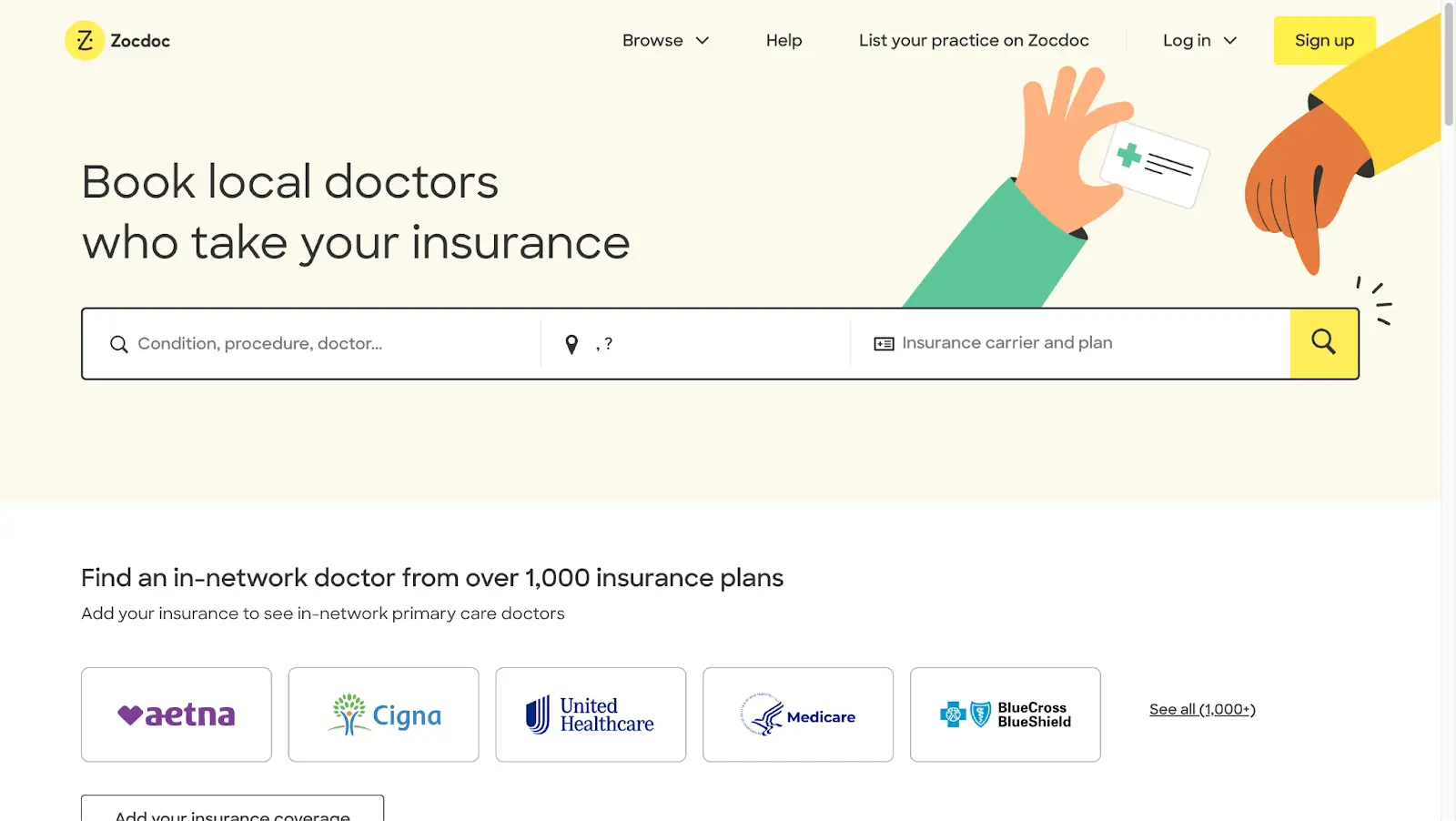
Zocdoc helps healthcare providers connect with patients quickly and easily. It’s a convenient platform where patients can book appointments online, making it simpler to manage your schedule and grow your practice. By putting your services in front of patients who are actively looking for care, Zocdoc ensures you’re always accessible when they need you.
- Patient Scheduling: Patients can search for providers, read reviews, and book appointments directly.
- Insurance Filtering: Zocdoc allows patients to filter searches based on accepted insurance, reducing confusion.
- Practice Visibility: Listing your services on Zocdoc increases your reach, especially for patients looking for care in your area.
This tool simplifies patient acquisition and keeps your schedule organized.
3. Solutionreach
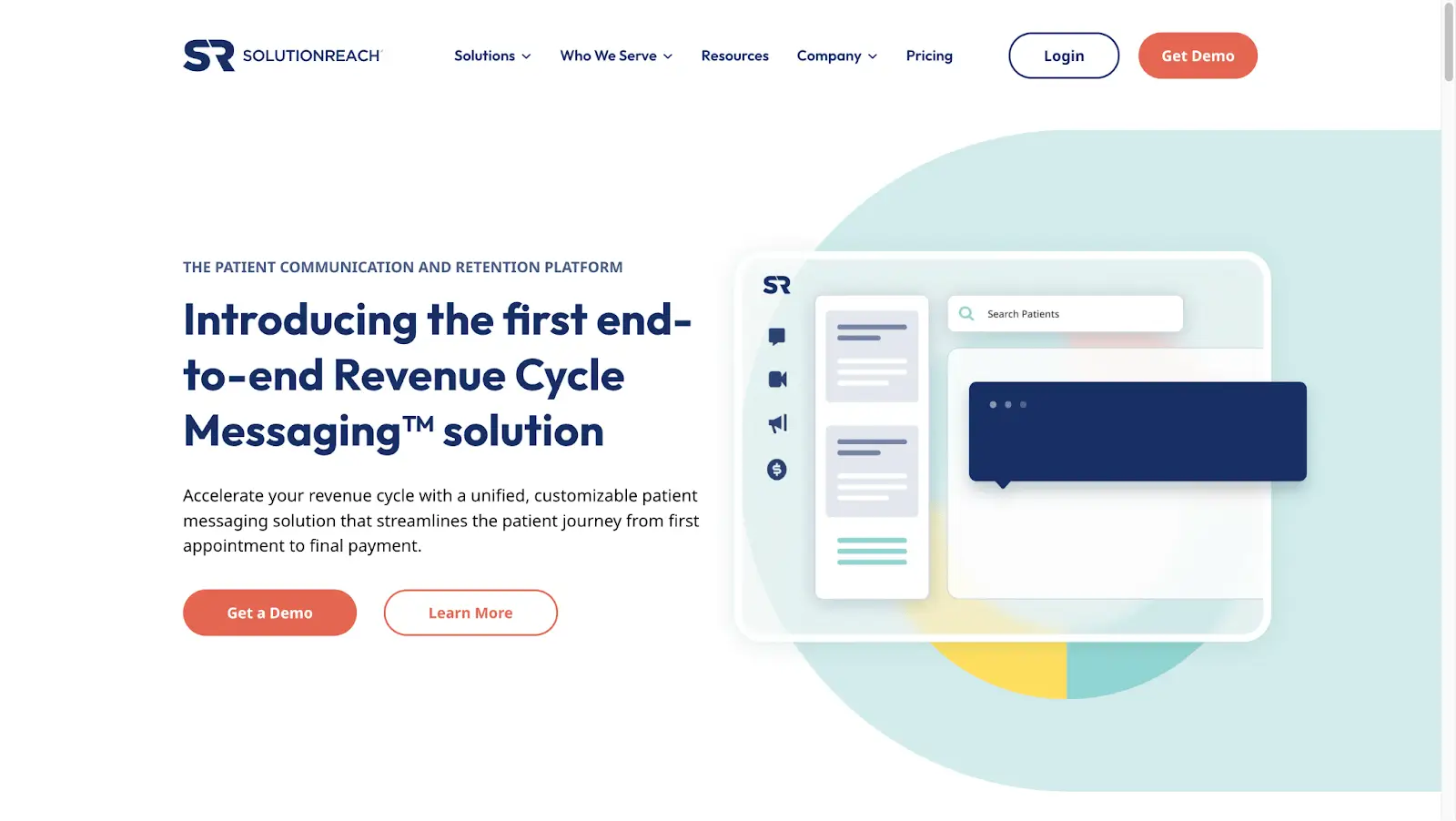
Solutionreach helps healthcare providers stay connected with their patients through easy-to-use communication tools. It offers features like appointment reminders, two-way texting, and email updates to keep things running smoothly. You can also collect feedback through surveys and send personalized messages to strengthen relationships with your patients. By simplifying day-to-day tasks, Solutionreach makes it easier to stay on top of patient engagement and provide a better overall experience.Features
- Automated Reminders: Send patients reminders for appointments, reducing no-shows.
- Patient Satisfaction Surveys: Collect feedback to identify areas for improvement.
- Marketing Campaigns: Create targeted campaigns, such as wellness tips or vaccination reminders.
For healthcare providers, Solutionreach bridges the gap between clinical care and personalized patient communication.
4. Doxy.me
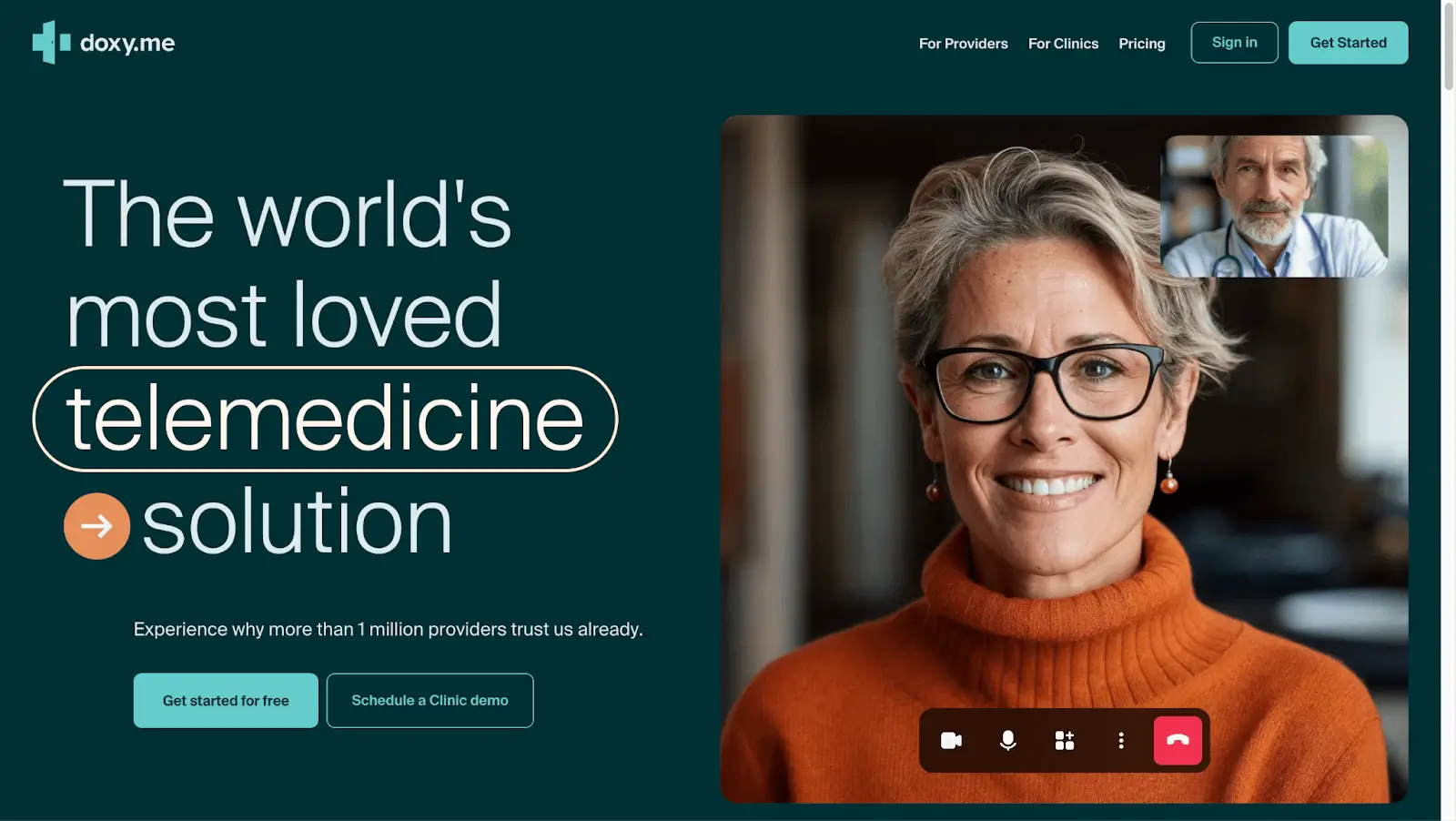
Doxy.me is a secure, HIPAA-compliant telehealth platform that makes virtual care simple for healthcare providers, no matter the size of their practice. It’s easy to use, with features designed to connect providers and patients seamlessly. Whether it’s a quick follow-up or a detailed consultation, Doxy.me ensures safe and reliable video appointments, so you can focus on delivering care without worrying about privacy concerns.Features
- No Installation Needed: Patients and providers can use it directly from a browser.
- Secure Video Consultations: Provide high-quality care remotely while ensuring data privacy.
- Custom Branding: Add your logo and colors to maintain a professional appearance.
Telehealth has become essential, and Doxy makes it accessible and straightforward.
5. CareCloud
CareCloud brings EHR, billing, and patient experience together in one easy-to-use platform. It’s designed to simplify your workflows by keeping everything in one place, from managing patient records to handling billing and improving the overall patient experience. With CareCloud, you can save time, stay organized, and focus more on what matters most i.e caring for your patients.
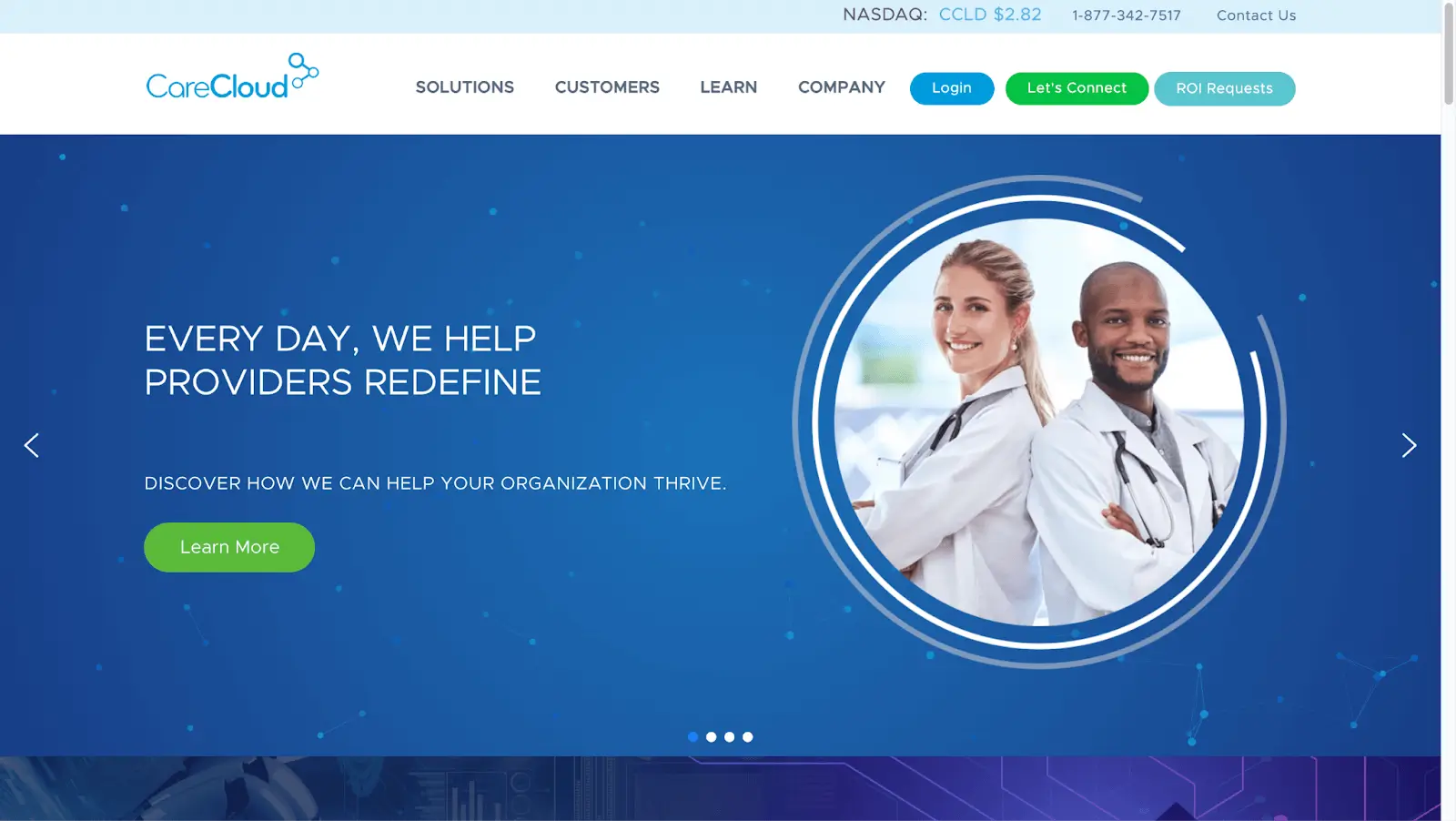
Features
- Billing Optimization: Streamline insurance claims and patient billing.
- Workflow Automation: Automate tasks like appointment scheduling and patient follow-ups.
- Patient Experience: Offer tools for online check-ins and payment processing.
This tool is perfect for growing practices that want to integrate clinical and administrative tasks.
FAQs
1. What is the target market for home health?
The target market includes seniors, individuals recovering from surgery or illness, people with disabilities, and those needing long-term care. Families seeking reliable care options for their loved ones are also key audiences.
2. How do you market healthcare?
Focus on building trust through an online presence, reviews, and testimonials. Use local SEO, social media, and community events to connect with potential patients and their families.
3. How to market yourself as a caregiver?
Highlight your experience, certifications, and compassionate care in your profiles and marketing materials. Leverage word-of-mouth, social media, and platforms like Care.com to reach families looking for caregivers.
4. How to promote a care agency?
Showcase your services and client success stories through a professional website, local advertising, and partnerships with hospitals or clinics. Online reviews and word-of-mouth referrals are also crucial.
5. Where is the best place to advertise for caregivers?
Use job boards like Indeed and specialized platforms like Care.com. Social media groups, local community centers, and healthcare events can also be effective.




